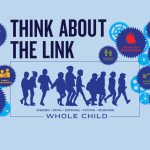Because reopening public schools in the coming school year will be fraught with unprecedented challenges, experts say, and education budgets may get cut to the bone, news of charter school startups and expansions will undoubtedly spark heated opposition from public school parents and teachers, even in well-to-do suburban communities, like Wake County, that may have been insulated from the financial costs of school choice in the past.
Glenn Mitoma referenced research that shows these mascots are harmful to the learning experience and mental health of children and teams, creating poor outcomes especially for indigenous students, but students of any other race as well.
Preston Green III, a professor of urban education and educational law with the University of Connecticut’s Neag School of Education, agreed there’s no legal basis for even the temporary withholding of the diploma. The student has property rights to the diploma under state law, as well as Constitutional protections under the First Amendment, Green confirmed.
It is the responsibility of sport governing bodies to support and encourage humanitarian athletes who speak out for causes grounded in the principles of Olympism, argue Mary Hums, Eli A. Wolff, and Nina Siegfried in this comment.
Polykosmia is a universe dreamed up by students in two classes led this spring by Stephen Slota (he/him, they/them), Neag School assistant professor-in-residence of educational technology. The project, an exercise in both worldbuilding and lesson planning, involved designing everything from mythologies to local governments to individual character arcs. Students also learned how to adapt worldbuilding activities into K–12 classrooms and how to design lesson plans that connected story objectives in a fictional world with learning objectives in the classroom.
Tamika P. La Salle, an associate professor of educational psychology with the University of Connecticut’s
Neag School of Education, said immigrant families tend to come with much more of a group mentality.
“It’s not just doing better for them, it’s doing better for their families and making their family proud. A lot of them have this collective identity,” said La Salle.
The Neag Foundation has provided the UConn Collaboratory on School and Child Health (CSCH) with a two-year grant to facilitate work in the Think about the Link Project. The project builds from the CDC’s Whole School, Whole Community, Whole Child (WSCC) model to fully acknowledge the many interrelated components involved in supporting student well-being. The Think about the Link Project offers practical tools to help schools enhance their work by incorporating the WSCC model in decision-making across academic, social, emotional, behavioral, and physical supports.
Graduation, prom, banquets, trips. Our teenagers are lamenting so many lost milestones. My daughter, a high school senior, recently summed up her thoughts about graduating amid a pandemic: “It feels like the light at the end of the tunnel was just snuffed out.”
“Many white families in America want to live in a certain type of community and want their kids to be educated in a certain type of school,” says Casey Cobb, the Neag Professor of Educational Policy. “It’s often not malicious, not overt, and not articulated. It’s just the broad pattern of how white Americans move about this land, and perhaps that’s the definition of a privilege that is increasingly being called out.”
“We had had a concerted effort to work with more urban districts in the state,” said Casey Cobb, professor of educational policy at the University of Connecticut, who helped reorient UCAPP’s approach to district partnerships. “But we never had formal partnerships beyond one with the Hartford School District. The Wallace initiative gave us the opportunity to reach out to districts to support their leadership development pathways.”



